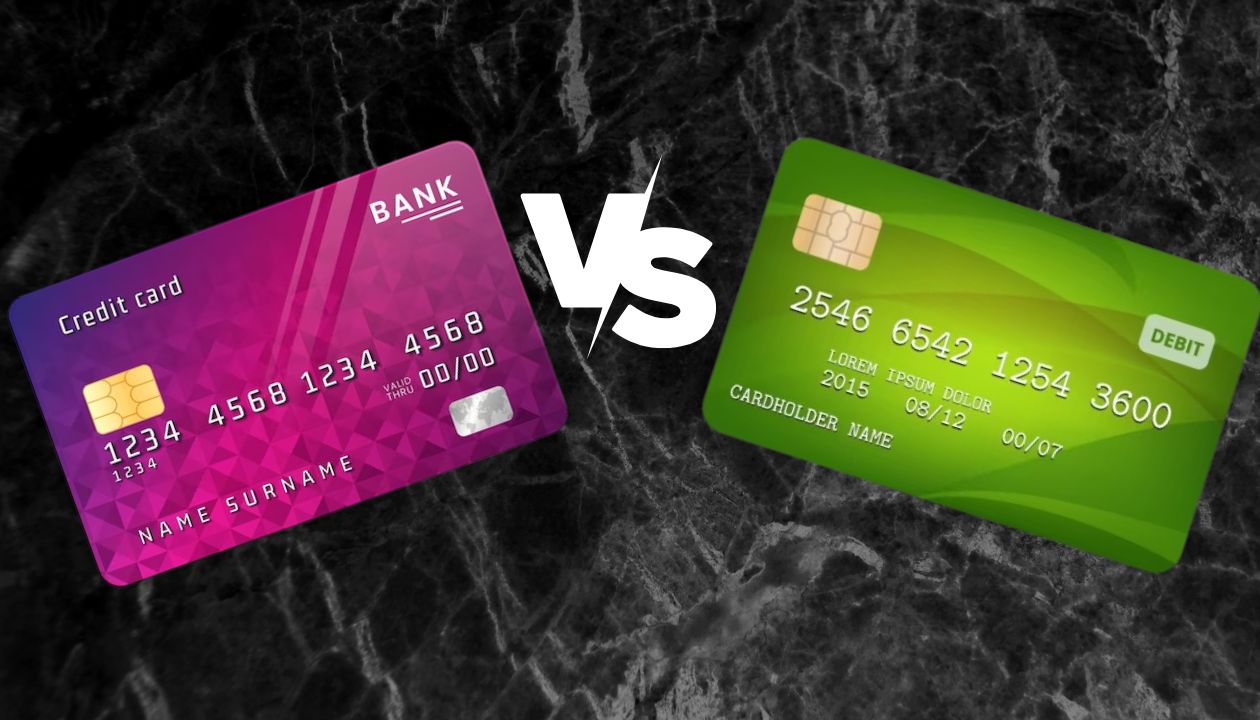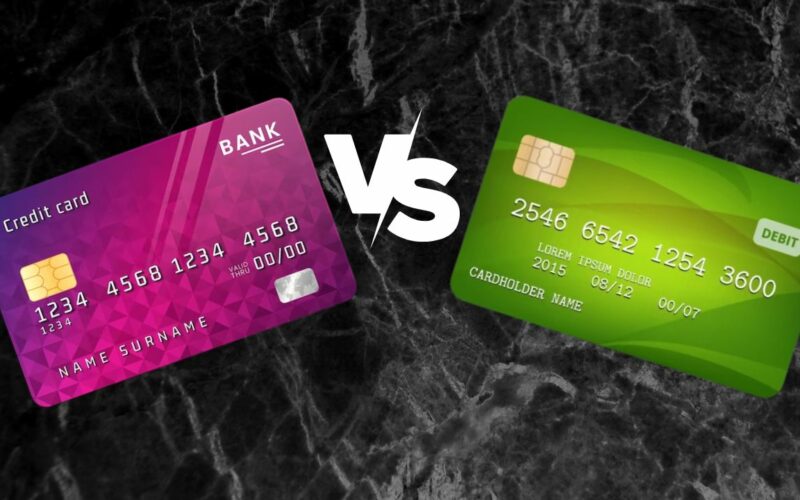When shopping or making purchases, you have a few payment options, including debit and credit cards. Both debit and credit cards allow you to make purchases without cash or cheques. Still, both cards work differently, and it's essential to understand the difference between debit and credit cards.
Understanding these differences is important because it can impact your finances differently. By the end of the article, you will clearly understand the differences between debit and credit cards, and you will be able to make informed decisions about which one to use in different situations.

Credit Card vs Debit Card
What is a Credit Card?
A credit card is like a loan you can use to purchase. When you use a credit card, you can borrow money from a lender, and you have to repay the borrowed amount plus interest in a specific time.
How Does it Work?
To use a credit card, you have to insert it into a payment terminal or swipe it. The lender will pay for the purchase on your behalf, and you will need to pay back the borrowed amount plus interest over time.
Pros of Using a Credit Card
- You can make purchases even if you don't have any money in your bank account.
- Some credit cards offer rewards like cash back or airline miles, which can save you money
Cons of Using a Credit Card
- If you do not pay off your balance in full each month, you will be charged interest, which can quickly add up.
- Some credit cards charge annual fees, which can take away from any rewards or benefits you get
Features of a Credit Card
Many lenders offer safety and security features, such as fraud protection and purchase alerts, to keep your credit card safe. Check with your lender to see what security features are available. It's also important to regularly monitor your account activity to ensure no unauthorized transactions.
What is a Debit Card?
Do you know what a debit card is? It's a card that lets you buy things using the money you already have in your bank account. When you use it to make a purchase, the amount you spend is immediately taken out of your account.
How Does It Work?
To use a debit card, you need to insert it into a card reader or tap it on a contactless payment terminal. You will be then prompted to enter your PIN for the purchase. The funds for the purchase are taken directly from your bank account.
Pros of Using a Debit Card
You can only spend the money you have in your bank account
Helps you avoid accumulating debt
It can help you stay within your budget
Cons of Using a Debit Card
Funds can be taken directly from your account if your card is stolen
No rewards or benefits like cashback or airline miles
Features of a Debit Card
Many banks offer safety and security features, such as fraud protection and purchase alerts, to keep your debit card safe. Check with your bank to see what security features are available. It's also important to regularly monitor your account activity to ensure no unauthorized transactions.
Key Differences Between Debit Card and Credit Card
| Debit Card | Credit Card |
| Linked to your bank account | Allows you to borrow money from a lender |
| Funds have been taken directly from your account | Must pay back borrowed money with interest |
| You can only spend what you have in your account | Can spend beyond your means |
| No interest or fees for using the card | May charge annual and high-interest rates |
| Helps avoid accumulating debt | Can build your credit score |
| Funds can be stolen directly from your account | Offers rewards like cash back or airline miles |
| Does not have a rewards program | Interest is charged on the remaining balance if not paid in full each month. |
Which Type is Best Suited for Different Types of Purchases?
Debit cards are best suited for everyday purchases like groceries, gas, and other essential items. This is because you can only spend what you have in your bank account, which can help you stick to your budget.
Credit cards are best suited for larger purchases or emergencies. A credit card can provide the necessary funds if you need more to pay for a significant investment upfront. Additionally, credit cards often offer rewards and benefits, which can save you money on larger purchases.
Choosing between a debit or credit card will ultimately depend on your financial situation and spending habits. Choosing the option that best suits your needs and helps you achieve your financial goals is essential.
How to Choose Between a Debit or Credit Card
Factors to Consider When Deciding Which Type of Card to Use
- Your spending habits and budget
- The rewards and benefits offered by the card
- The interest rates and fees associated with the card
- Your ability to pay off the balance in full each month
When to Use a Debit Card?
Debit cards are best suited for everyday purchases, like groceries, gas, and other essential items. This is because you can only spend what you have in your bank account, which can help you stay within your budget.
When to Use a Credit Card?
Credit cards are best suited for larger purchases or emergencies. If you need the funds to pay for a significant investment upfront, a credit card can provide the necessary funds. Credit cards often offer rewards and benefits, like cash back or airline miles, which can save you money on larger purchases.
It's essential to use credit cards responsibly and avoid carrying a balance from month to month. If you cannot pay off your balance in full each month, the interest charges can quickly add up and lead to debt.
It is essential to consider your financial situation and spending habits when deciding whether to use a debit or credit card. You should select the option that best meets your needs while also assisting you in meeting your financial objectives.
Conclusion:
Debit and credit cards are important tools for managing your money, but they have distinct differences and pros and cons.
By learning about these differences and evaluating your own financial situation and spending habits, you can make smart choices about which card to use for different purchases. Planning and self-control allow you to manage your finances well and build a secure financial future.









